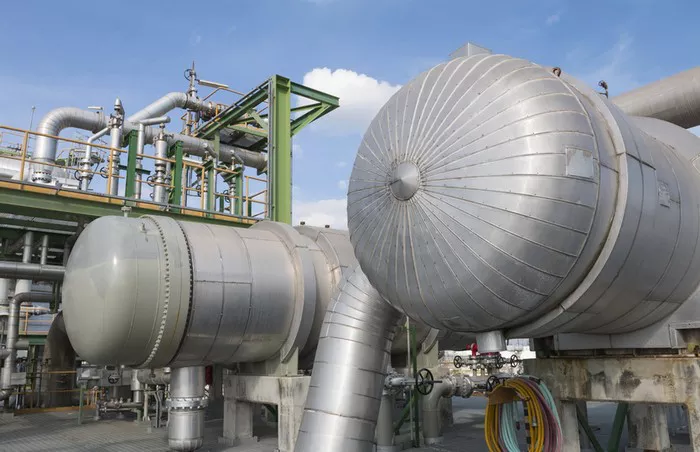The global heat exchanger market is undergoing significant transformation, driven by technological innovation, regulatory shifts, and the increasing push for energy efficiency across multiple industries.
As industries strive to reduce energy consumption and carbon emissions, heat exchangers have emerged as critical components in systems requiring thermal management, including power generation, HVAC, manufacturing, and renewable energy installations.
Compact Designs and Smart Systems Gain Momentum
One of the most notable trends reshaping the market is the widespread adoption of compact heat exchangers. These units, valued for their space-saving design and high thermal efficiency, are gaining traction in sectors such as residential HVAC, automotive, and aerospace—industries where space constraints and heat transfer efficiency are paramount.
In addition, manufacturers are favoring advanced materials like titanium, stainless steel, and high-nickel alloys to enhance corrosion resistance and durability, particularly in harsh or high-pressure operating environments. This shift is especially visible in plate and shell-and-tube heat exchanger designs.
The integration of digital technologies is also driving change. Smart sensors and IoT-enabled monitoring systems are becoming increasingly standard, allowing for real-time diagnostics, predictive maintenance, and optimized energy performance—helping companies cut operational downtime and energy costs.
Industrial Expansion and Clean Energy Drive Market Growth
The market’s growth is being fueled by global industrialization, urbanization, and the mounting demand for energy-efficient systems. Emerging economies, in particular, are witnessing a surge in infrastructure and power generation projects where heat exchangers are vital for energy transfer and operational reliability.
Thermal and nuclear power plants, alongside the oil and gas sector, continue to invest heavily in high-performance heat exchangers. These industries require systems that can withstand extreme conditions and manage substantial thermal loads. Similarly, the HVAC industry is expanding rapidly, spurred by rising temperatures, urban development, and growing demand for climate-controlled environments in residential and commercial buildings.
Other contributors include the food and beverage industry, which relies heavily on efficient heat transfer for processes like pasteurization and sterilization, and the transition to renewable energy sources. Technologies such as solar thermal systems, geothermal heating, and biomass energy are creating new opportunities for heat exchanger manufacturers.
Outlook: Sustainability and Smart Manufacturing to Shape Future Demand
The outlook for the heat exchanger market remains highly optimistic, with demand expected to grow significantly over the coming years. This growth is underpinned by global efforts to decarbonize industries and improve energy utilization. As organizations pursue net-zero goals, efficient heat recovery systems are becoming integral to refining, chemical processing, and manufacturing operations.
Sustainability trends such as the circular economy are further bolstering demand. The reuse of industrial waste heat is increasingly seen as a cost-effective strategy to reduce environmental impact. Simultaneously, the rise of smart manufacturing is promoting the use of digitally connected heat exchangers that offer real-time performance insights and remote monitoring capabilities.
Urban energy systems are also contributing to demand. District heating and cooling networks, especially in Europe and Asia, are turning to modular and high-efficiency heat exchangers to manage variable energy loads from multiple sources. Meanwhile, the global boom in data centers is accelerating interest in liquid-cooled, compact heat exchangers to meet precise thermal regulation needs that traditional air-cooling systems cannot match.
Major Players and Industry Landscape
The heat exchanger industry is home to a mix of long-established firms and innovation-driven players. Leading companies include:
- Alfa Laval
- API Heat Transfer Inc.
- Danfoss
- General Electric Company
- Hisaka Works
- IHI Corporation
- Johnson Controls
- Kelvion Holding GmbH
- Koch Industries
- Lytron Inc.
- Mersen
- Modine Manufacturing
- Royal Hydraulics
- Sondex A/S
- Xylem Inc.
These companies are investing in R&D, sustainable materials, and smart technology to maintain competitiveness in a rapidly evolving market.
Industry Trends Signal Long-Term Evolution
Industry analysts point to a broader transformation in the heat exchanger market driven by a convergence of environmental, economic, and technological factors.
Compact, high-efficiency designs are being tailored for fluctuating temperature and pressure conditions, enabling integration into decentralized and renewable energy systems. New materials and alloys are being developed to support the demanding requirements of biomass boilers, solar collectors, and geothermal systems.
Digitalization is reinforcing this shift. Cloud-connected heat exchangers with IoT capabilities allow operators to optimize performance, track maintenance schedules, and ensure compliance with tightening environmental standards.
Meanwhile, modular and scalable systems are gaining prominence in sectors like pharmaceuticals, chemicals, and high-tech manufacturing, where process flexibility is essential. The demand for heat recovery and resource-efficient technologies is expected to drive further innovation as companies align with global sustainability mandates.
Related topics:

